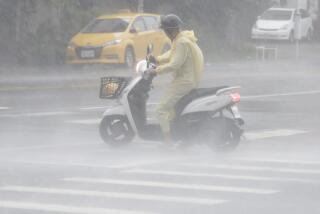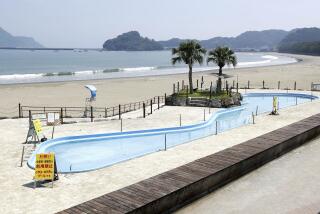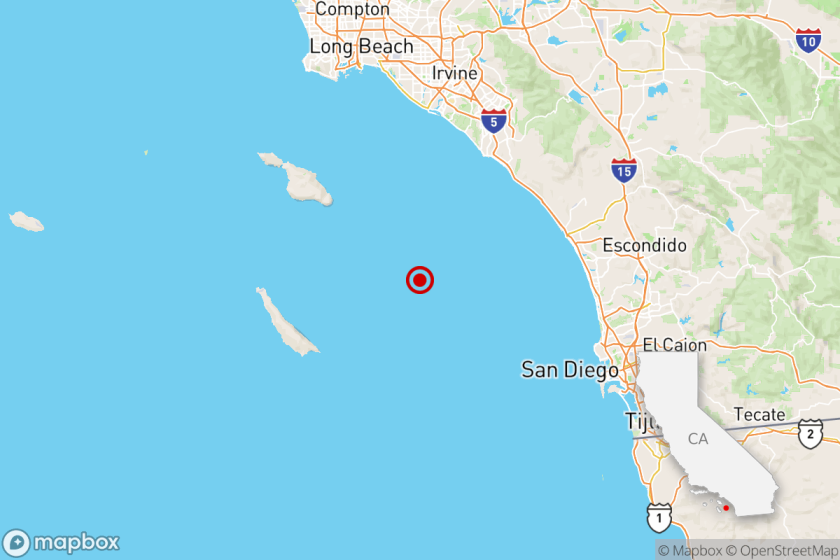Earthquake rocks Taiwan, damaging buildings and leaving 4 dead
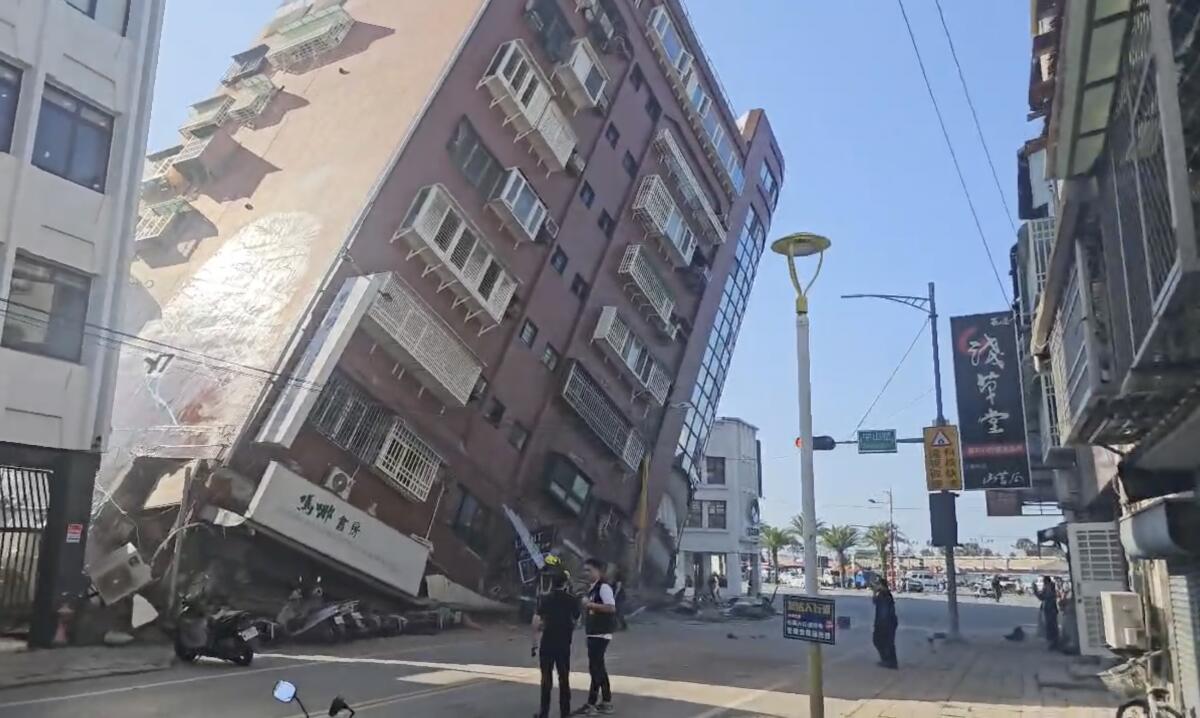
TAIPEI, Taiwan — Taiwan’s strongest earthquake in a quarter of a century rocked the island during the morning rush Wednesday, damaging buildings and highways and and causing the deaths of four people.
Taiwan’s national fire agency said four people died in Hualien County and at least 57 were injured in the quake that struck just before 8 a.m. The local United Daily News reported three hikers died in rockslides in Taroko National Park near the offshore epicenter.
In the lightly populated eastern coastal city of Hualien, the first floor of a five-story building collapsed and the rest of the building was left leaning at a 45-degree angle. In the capital, Taipei, tiles fell from older buildings and within some newer office complexes.
Schools evacuated their students to sports fields, equipping them with yellow safety helmets. Some also covered themselves with textbooks to guard against falling objects as aftershocks continued.
Taiwan’s earthquake monitoring agency gave the magnitude as 7.2 while the U.S. Geological Survey put it at 7.4. It struck about 11 miles south-southwest of Hualien and was about 21 miles deep.
Multiple aftershocks followed, and the USGS said one of the subsequent quakes was 6.5 magnitude and 7 miles deep. Shallower quakes tend to cause more surface damage.
Train service was suspended across the island of 23 million people, as was subway service in Taipei, where a newly constructed above-ground line partially separated.
Traffic along the east coast was at a virtual standstill, with landslides and falling debris hitting tunnels and highways in the mountainous region. Those caused damage to vehicles, though it wasn’t clear if anyone was hurt.
On the 30th anniversary of the Northridge temblor, Lorraine Ali recalls a city living with instability, danger and fear.
Despite the quake striking at the height of the morning rush hour, there appeared to be little panic on much of the island, which regularly is rocked by temblors and holds drills at schools and issues notices via public media and mobile phone.
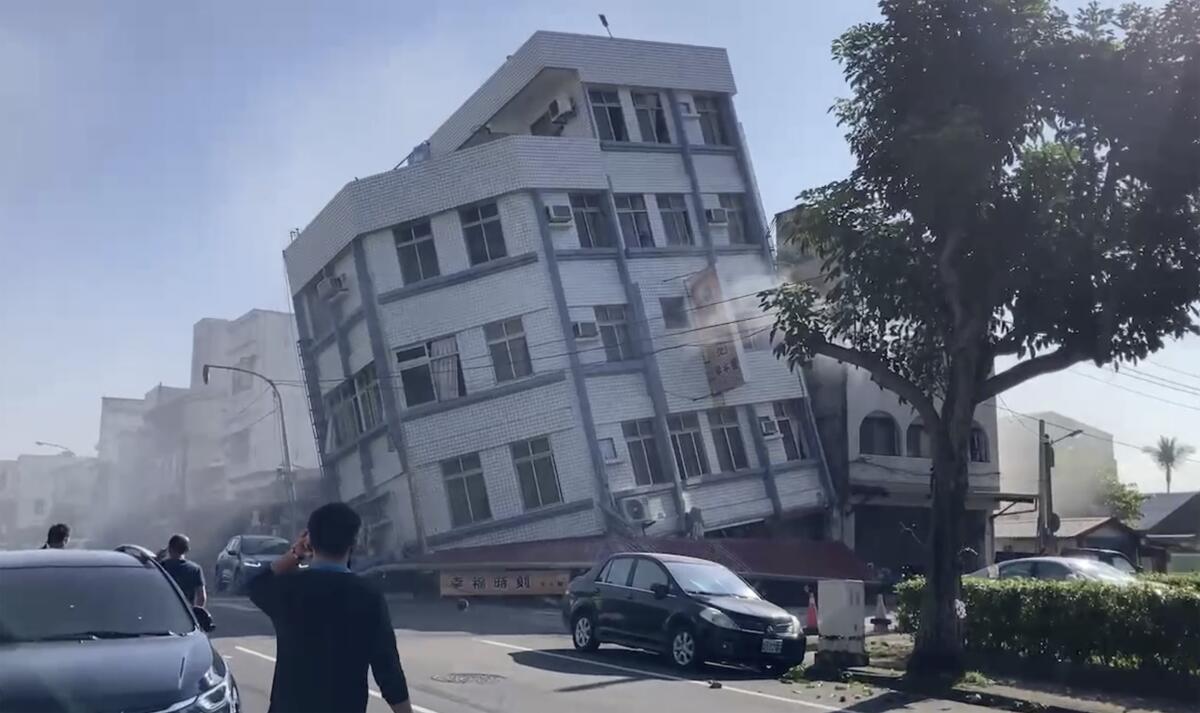
Authorities said they had believed the quake would reach magnitude 4 and did not send out alerts.
The earthquake was strong enough to scare some well used to temblors. Taipei resident Hsien-hsuen Keng said her fifth-floor apartment shook violently.
“Earthquakes are a common occurrence, and I’ve grown accustomed to them,” she said. “But today was the first time I was scared to tears by an earthquake.
Alarmed by a plummeting birthrate, Taiwan’s government has set out to help young people meet, marry and have children. But success is elusive.
”I was awakened by the earthquake,” she said. “I had never felt such intense shaking before.”
Hualien was struck in 2018 by a deadly quake, which collapsed a historic hotel and other buildings. Taiwan’s worst quake in recent years struck on Sept. 21, 1999, with a magnitude of 7.7, causing 2,400 deaths, injuring about 100,000 and destroying thousands of buildings.
California-based earthquake expert Lucy Jones said on X that the quake appeared to be along a fault that crosses Hualien.
The temblor’s “magnitude doesn’t tell you the damage — the shaking depends on magnitude and proximity to the fault,” Jones wrote. “Expect much more damage in Hualien than other cities.”
Incoming Taiwanese President Lai Ching-te must grapple with an increasingly fraught relationship with China that has edged closer to armed conflict.
The Japan Meteorological Agency said a tsunami wave of about 1 foot was detected on the coast of Yonaguni island about 15 minutes after the quake struck. Smaller waves were measured on Miyako and Yaeyama islands.
The earthquake was felt in Shanghai and several provinces along China’s southeastern coast, according to Chinese media. Mainland China and Taiwan are about 100 miles apart. China issued no tsunami warnings for its mainland.
Residents of China’s Fujian province reported violent shaking, according to Jimu News, an online outlet.
Growing concerns over war with China have Japan’s southwestern islands scrambling to bolster defenses.
In the Philippines, residents along the northern coast were told to evacuate to higher ground, but no major tsunami was reported hours after the quake.
Japanese Chief Cabinet Secretary Yoshimasa Hayashi said there has been no report of injury or damage in Japan.
The Pacific Tsunami Warning Center said there was no tsunami threat to Hawaii or the U.S. Pacific territory of Guam. About three hours after the earthquake, it said the threat had largely passed for all areas with waves being reported only in Taiwan and southern Japan.
Taiwan lies along the Pacific “Ring of Fire,” the line of seismic faults encircling the Pacific Ocean where most of the world’s earthquakes occur.
Bodeen writes for the Associated Press. Los Angeles Times staff contributed to this report.
More to Read
Sign up for Essential California
The most important California stories and recommendations in your inbox every morning.
You may occasionally receive promotional content from the Los Angeles Times.





